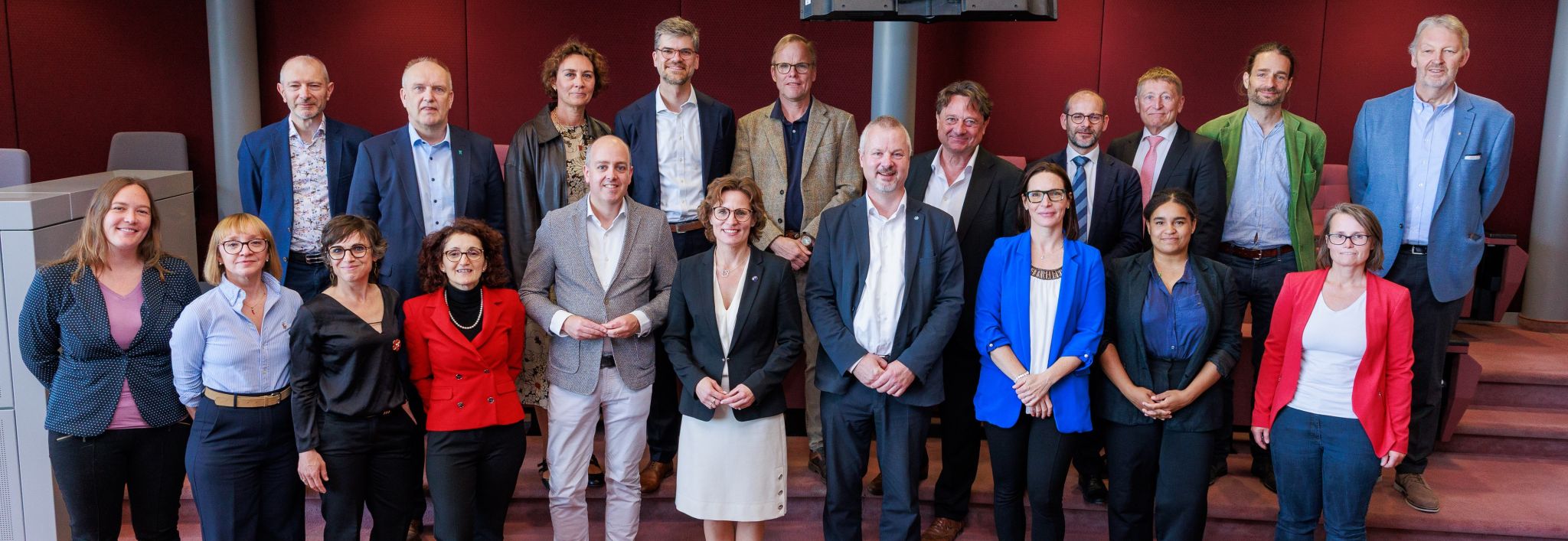
Jean-Marc Jossart Emphasizes Bioenergy’s Role in Advancing the EU Bioeconomy Strategy
Brussels, May 2025 – On Friday 16th, Bioenergy Europe’s Secretary-General Jean-Marc Jossart participated in the high-level Stakeholder Dialogue with European Commissioner Jessika Roswall on the upcoming EU Bioeconomy Strategy. The meeting brought together 20 representatives from across Europe’s bioeconomy sectors to identify transformative opportunities and critical policy needs for building a resilient, sustainable, and circular bioeconomy.
Unlocking Breakthrough Opportunities
Jossart highlighted a major evolution underway in the bioeconomy: the shift toward integrated biorefineries. These future-proof facilities combine the production of bio-based materials with renewable heat and power generation, and even carbon removals—offering a “triple dividend” of economic competitiveness, decarbonisation, and environmental performance.
“Today, woody biomass is mainly used by wood-based industries, in heat and combined heat and power (CHP) plants for district heating and in the residential sector”, said Jossart. “Tomorrow, biorefineries will bring a new industrial impulse by poly-generating bio-based products, renewable energy, and negative emissions. This will not only help phasing out fossil fuels but also unlock new value chains and job opportunities, especially across rural and industrial regions,” he added.
This convergence of bio-based production, energy generation, and carbon management could address multiple EU priorities simultaneously: from climate neutrality and energy security to re-industrialisation and circular economy goals.
Sustainability at work
Responding to questions about environmental safeguards, Jossart underscored the bioenergy sector’s leadership in sustainability practices. The criteria and monitoring systems developed for bioenergy could serve as a reliable model for scaling up sustainability governance in other bioproduct sectors, avoiding duplication and accelerating implementation. “The bioenergy sector has a solid sustainability framework under the Renewable Energy Directive (RED)” he said. “These rules—largely based on reliable agriculture and forestry practices—are transposable and could inspire the entire bioeconomy.”

Removing Regulatory Barriers
Despite its potential, Europe’s bioeconomy still faces significant obstacles. Jossart stressed that regulatory stability is urgently needed to restore investor’s confidence. “The last frequent changes to the sustainability criteria for bioenergy created uncertainty and hampered investments. Long-term regulatory certainty is essential to scale up investments across the entire bioeconomy.”
He also called for smarter, more inclusive biomass supply policies, including better support for mobilising agroforestry residues, by-products, and biomass from abandoned or marginal land. Addressing logistical gaps—such as strategic biomass storage requirements comparable to those for fossil gas and oil—would further strengthen the EU energy resilience.
Additionally, Jossart proposed a targeted renovation program for outdated biomass appliances in the residential sector. “Upgrading old systems would boost efficiency, reduce emissions, and free up more biomass for the whole bioeconomy,” he said.
A Shared Path Forward
Concluding his remarks, Jossart reiterated the bioenergy sector’s commitment to supporting the EU’s Bioeconomy Strategy as a pillar of the green transition. “We have the expertise, infrastructure, and sustainability frameworks in place. What we need now is policy consistency, better logistics support, and coordinated investment,” he stated.
The Stakeholder Dialogue marks a renewed momentum for aligning Europe’s Bioeconomy Strategy with its climate and energy ambitions. Bioenergy Europe will continue working with EU institutions to ensure bioenergy’s vital contribution is fully recognised and integrated into future policy developments.





